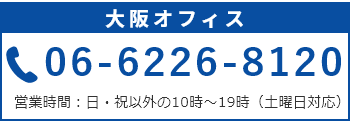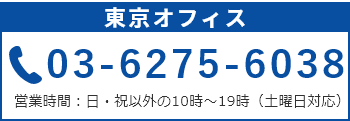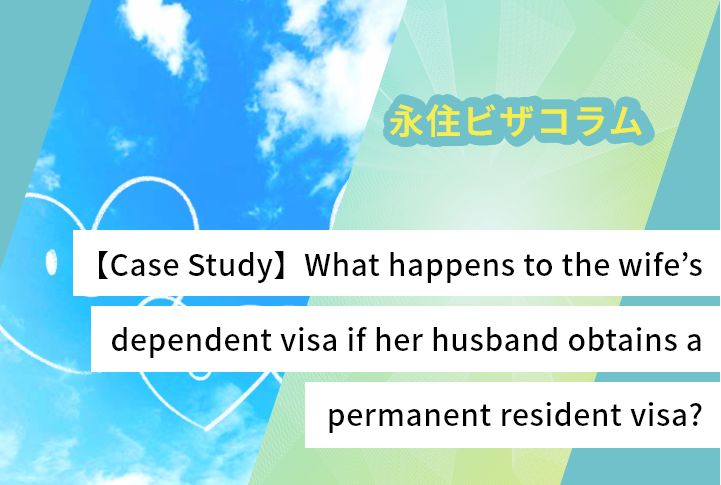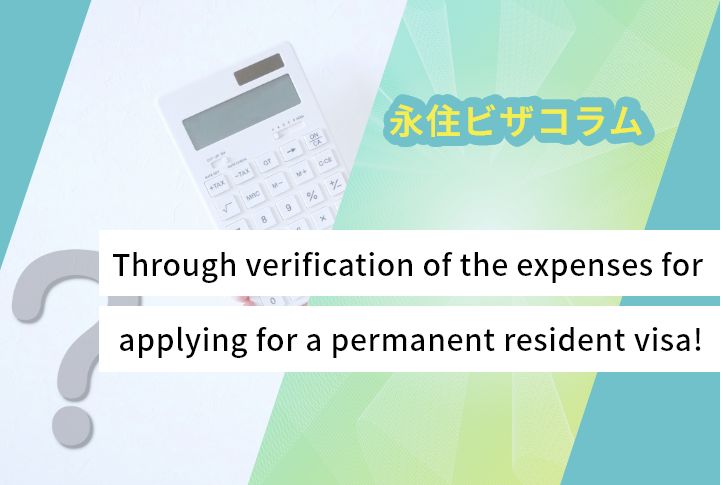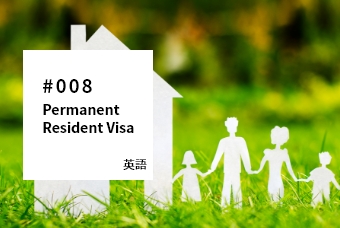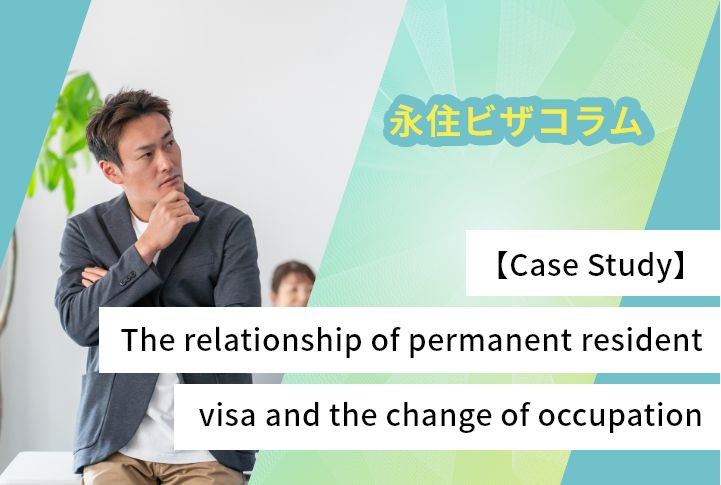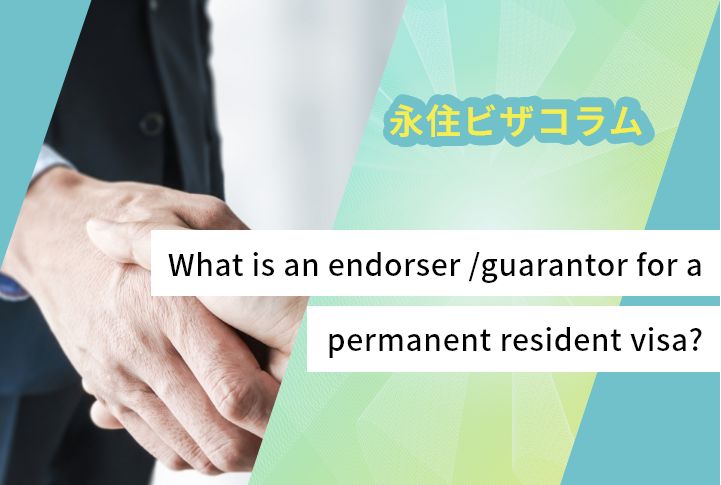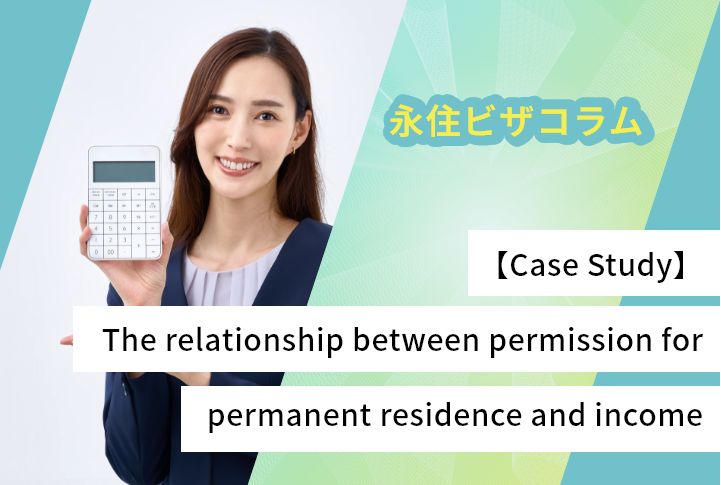Is obtaining a permanent resident visa in Japan difficult? FAQ for application for permanent resident visa
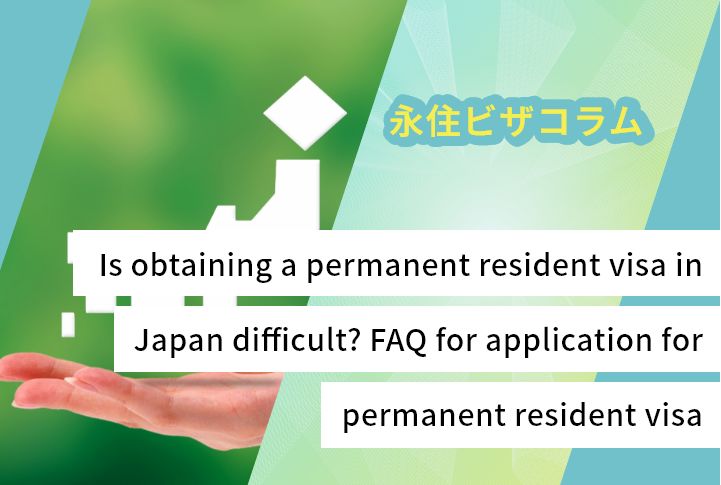
You might have heard that the requirements for obtaining permanent residency in Japan are getting to be stricter every year.
In fact, in July, 2019, new criteria for examination pertaining to permanent resident visa was established and started to have influence on examination.
So, in that sense, obtaining permanent residency in Japan is actually getting to be harder year after year.
However, many of the criteria for examination pertaining to permanent residency have been announced to the public.
As long as you gather correct information before applying, it is not very difficult to obtain permanent residency.
In this article, we summarized FAQ regarding the application for permanent resident visa, so you know correct information.
I hope you can utilize this information.
Index
Q1. I have changed my jobs many times. Would it be difficult for me to obtain permanent residency?
A1. The changes of occupations may affect the result of application for permanent residency. For example, if you have changed your occupations many times, you need to verify the length of the times when you were between jobs. Even in case you have had your work visa for more than 5 years, if the 5 years include when you were between jobs, you need to be careful. Furthermore, during the examination pertaining to permanent residency, the authority focuses on whether your working status is stabilized after changing job. If it’s been only a short time since you changed your job, they might consider that your working status is not stabilized and disapprove your application for permanent residency.
Q2. How much annual income do I have to make to obtain permanent residency?
A2. The standard of income required to obtain permanent residency is not stipulated in law. In practice, the standard is annual income of 3 million yen for every year of the most recent consecutive 5 years. Please note that even if you have more than 3 million yen as your annual income, you don’t fulfill the income standard in case you have many dependents in your family.
It is considered that if you have many dependents in your family, you need enough income to cover costs to support them. For that reason, you are required to have more income corresponding to the number of dependents rega
rdless of the standard of 3 million yen.
Q3. How much savings would work to my advantage when applying for permanent residency?
A3. There is no standard for savings for the examination pertaining to permanent residency, and therefore, it is not like “You have this much of savings, so you can receive permanent resident visa!”
In connection with the above, in the immigration practice, annual income is more important than savings. Nevertheless, the fact that you have saved a certain amount of money which corresponds to the amount of your income while working under work visa is considered to show the stability of the living and financial conditions. Such fact is therefore deemed to be a positive element in the examination regarding permanent residency.
Q4. Would it be better if my spouse and children, who are staying in Japan with dependent visas, apply for permanent resident visas at the same time as when I apply for one?
A4. If your spouse or children meet the requirements of permanent residency, it would be better to apply for permanent residency together with yours. If you obtain permanent residency alone for some reason, your spouse and children have to change their visas to a visa for spouse or child of permanent resident or a visa for long-term resident (for more details, please see “【Case Study】What happens to the wife’s dependent visa if her husband obtains a permanent visa?” If you and the rest of your family members apply separately, you have to go through the visa application process more than one time, and also have to prepare documents every time you or your family apply. Hence, if your family members meet the requirements of permanent residency, it is more beneficial to apply for permanent residency together, considering the overlapping of procedures.
Q5. I have committed traffic violations… Will it be difficult for me to obtain permanent residency?
A5. First, you need to verify the level of the traffic violations. If it’s only once or twice and the violations are insignificant, they won’t have much impact on your application for permanent residency. In contrast, if you have repeatedly violated the traffic rules, they may affect the examination pertaining to permanent residency.
Moreover, if you have a history of payment of fine for a traffic violation, there is a high possibility that your application for permanent residency will be rejected until 5 years will pass since the date of such payment of the fine.
In any case, it is significant to always be mindful of safe driving, regardless of the examination of permanent residency.
Q6. I have never paid any pension. If I start paying now, will be possible for me to obtain permanent residency?
A6. You can pay national pension premium for the most recent 25 months at the maximum. The way of handling can be a bit different depending on each immigration office, but the possibility to obtain permanent residency is very low if you have delayed in payments or haven’t pay some of the amounts during the last 2 years.
Similar to the traffic violation mentioned above, regardless of permanent residency, the payments of pension are a public duty. Therefore, it is always better to make payments by the payment dates, and eventually it helps you to receive permanent residency.
Q7. I often have business trips to other countries. Is it impossible for me to obtain permanent residency?
A7. If the number of days that you are outside of Japan is high, it may affect the examination on permanent residency, but it depends on the reason why you have traveled abroad so many times and is not always considered as a negative element. We recommend you to clarify the reasons for the trips and to explain that the reasons are reasonable and the frequency and duration are adequate.
There was a case we dealt with where the applicant for permanent residency was abroad for more than half a year because of his work, but managed to obtain permanent residency.
In conclusion, as long as you can prove that the trips abroad are reasonable, there is a chance that you receive permanent residency.
Q8. Regarding the endorser required for the application of permanent residency, is there any requirement regarding income of an endorser?
A8. Considering the responsibilities imposed on endorsers, theoretically, endorsers should have enough income to support their own family and the applicant. Having said that, as long as we have seen, there was no case where application for permanent residency was rejected because the income of the endorser was too low.
In comparison with above case, what about if there was no endorser for the applicant of permanent residency?
In such case, such applicant is unable to obtain permanent residency.
Although an endorser for an applicant of permanent residency is not so emphasized, it is considered necessary for staying in Japan. It is because if there is no one you can ask to be your endorser, it is regarded that you are not accustomed to Japanese society.
In summary, an endorser is necessary for the application for permanent residency, but there is no standard that is so high, and anyone who has income regularly should be qualified as an endorser.
Q9. What kind of responsibilities do endorsers for application for permanent residency bear?
A9. Endorsers for application for permanent residency must guarantee the following 3 items.
1) Costs of staying
2) Travel expenses to go back to the applicant’s country
3) Compliance with laws and regulations
Such responsibilities of endorsers are not legally binding, but are considered as moral responsibilities.
Even if the relevant foreigner is not able to prepare costs of staying or travel expenses to return to his/her country, the endorser is not requested to pay them or to fulfill his/her responsibilities right away by any legal means. The “guarantee” here has original meaning for the immigration system, and is different from the fidelity guarantee agreement under civil law.
Please see“What is an endorser for a permanent resident visa?” for more details as to endorsers for permanent resident visa.
Q10. Does the history of rejection of application for permanent residency have any negative influence to re-application for permanent residency?
A10. Unless you submitted documents containing false contents or matters contradictory to facts to the immigration office, the history of rejection of application for permanent residency usually does not have any influence.
Having said that, if you do not fix the situation being the ground for the rejection, the result will be the same no matter how many times you try for permanent residency. Thus, if your application for permanent residency has been rejected, it is important that you find out and take care of the reason of the rejection.
For more details, please see“Don’t give up even if your application for permanent residency is rejected! How to re-apply for permanent residency”.
Q11. It seems like the period of stay will expire while I am applying for permanent residency. Do I need to apply for extension of my visa although I am applying for permanent residency?
A11. The period of stay specified by your visa is not suspended while you apply for permanent residency. You therefore need to apply for the extension of your visa before the expiration of your visa even if you are in the middle of applying for permanent residency.
Please note that if the period of stay is less than 3 months when you are applying for permanent residency, you need to apply for extension of your visa at the same time or before you apply for permanent residency. Otherwise, the application for permanent residency will not be accepted in practice.



